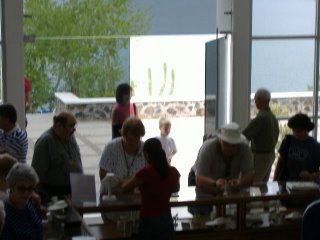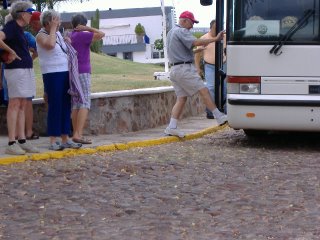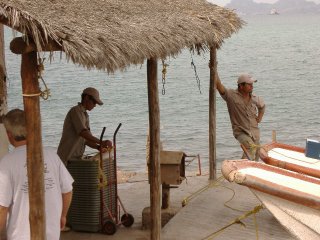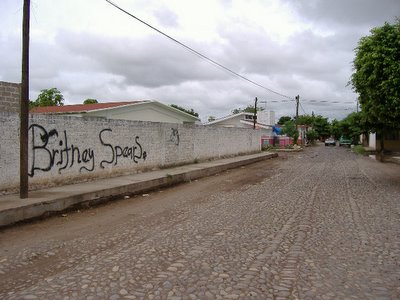Trans National
| Well, as you can see from that last post, late in October, I've been encountering some moral and ethical difficulties in doing this work. And I think it's only correct to talk a little bit about that. You see, if you get what I'm saying in that last post, there is no way for a man to understand what the world looks like from a woman´s point of view without inadvertently flexing oodles of male privilege. And this takes a lot of forms. One of them is that women - I´m told - just act differently when a man is in the room.. and part of that is that the man is unable to resist his urge to give advice, ask provocative questions, talk over and interrupt... it throws off the entire conversational dynamic. It has nothing to do with whether the man is right or wrong.. it´s that he doesn´t know how to talk without playing the competition card. A more subtle form is socialization with respect to "Female Beauty". When a man is in the room, he acts differently towards different women depending on their attractiveness. And women, whether they consciously reject it, or subconsciously respond to it... it affects the dynamic. Women are generally aware of their level of beauty, and it impacts women-only groups as well.. but when there´s a man there with his attention hanging out for all to see, it´s a distraction to the bonding that goes on with women alone. Many men will find that a journey into the world of feminist activism sounds exciting. Many of you may have tried organizing with women yourselves. But you see, if I tell the stories in a way that romanticizes the experience, you might think it´s appropriate for you to join women´s groups and work with them to organize for more gender equality. Or that somehow, you have learned enough from my experience to think you can just waltz in and start telling women how to be feminists. What I hear over and over again is: Do you think we need a man to protect us and help us figure out how to get organized and support each other? Why don´t you go find a group of men and show them how to work more respectfully with women, maybe find other ways to burn off their aggression or massage their egos besides coming into our groups and unconsciously bossing us around? Besides, then I´d be responsible for more "sensitive daddies" entering women´s groups and haplessly reinforcing their privilege, only to go back home, manipulate their wives, cheat on their girlfriends, or ask their secretaries make them coffee, supporting the system that makes this man´s world possible. You want facts? Soon, there will be facts. There are plenty of facts for everyone. You can even have seconds. But while you're waiting, try Riane Eisler´s "The Chalice and the Blade". You want photos? Well, I have them. But photos are presenting even a bigger ethical challenge, because they don't tell the whole story, and well, it just feels wrong to photograph strong women. Yes, it can and has been effective in changing opinions. But there is a price to pay for those images. The way images of women are used in society is a big enough problem as it is. Now, obviously it's true, that the answer can't be to continue allowing men to remain unaware. We're one of the most unaware genders ever, especially given the resources we have available. What I'm questioning is whether writing this blog and creating stories for community radio is the best way to work with women to destroy a system that institutionalizes gender inequality in favor of males. And so, what you see here and hear from me in the future, will reflect this deep uncertainty. And you men can help alleviate it, by organizing other groups of men and showing them their unconscious sexism. Now. |





